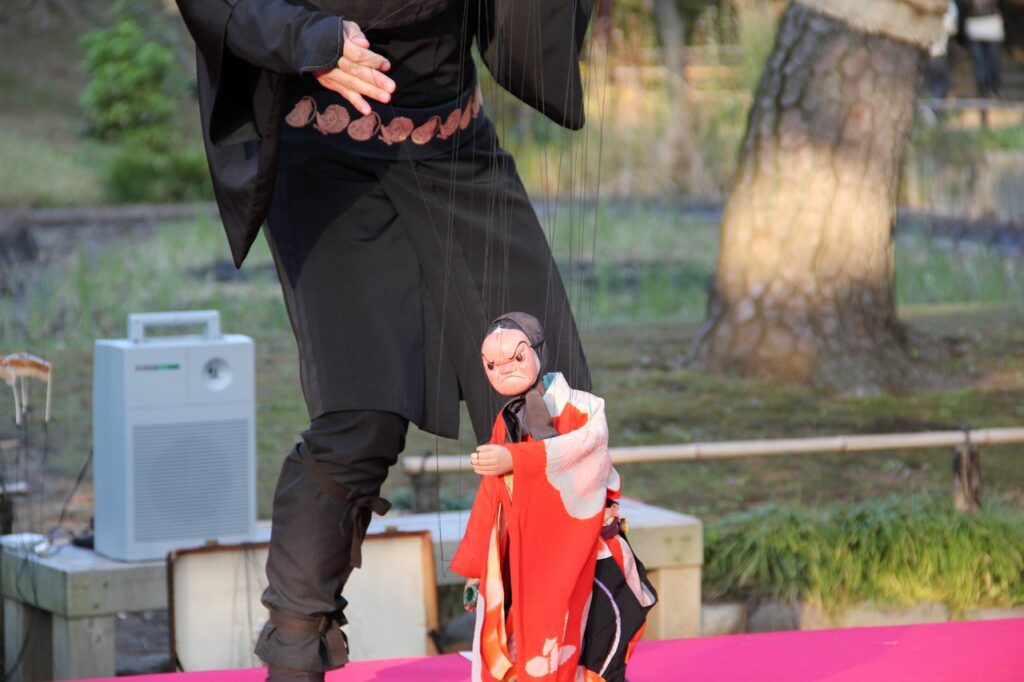- Audience Interaction
Games
Respect, Engage, Incorporate
The Audience - Your other partner
The audience has come to watch the show. Some of them might be willing to join you on stage if you are brave enough and have tools to make it an enjoyable experience for everyone.
If you avoid the audience, (like some performers), you miss out on one of the important differences that improvisation has over traditional theatre. Some performers implicitly see the audience as a beast to be tamed. Others understand they are our partner.
If you are looking for HOW to interact with the audience, check out this article on “AUDIENCE CARE” which should help.
Let’s explore what to do with the audience when they join you on stage. I’ve left out LONG FORM AUDIENCE involvement. That’s a whole other article. These are just a few suggestions mostly for shorter formats and by no means exhaustive.
If you are looking for full descriptions of the exercises you can probably find the details with a quick search or send me a note and I might write an article about it for you. Have fun.

Never treat your audience as customers, always as partners.
- James Stewart
-
Can I have a volunteer from the Audience?
Types of onstage interaction
VERBAL
Limiting what an audience member says takes pressure off a frightened guest. It can also protect the audience from the volunteer who thinks they are the funniest one in the room. Giving them a voice can also create great surprises for you.
EMPOWER
Historically, improvisers have USED audience members. Empowerment techniques gives strength and choice to volunteers. Never try to get a laugh at their expense. Give them strength and they might be the best part of your show.
PHYSICAL
When they move, they have less time to think about what they say or don't say. Physical exercises help to keep the volunteer present.
PERFORMANCE
When you find yourself on stage with someone brave enough to stand toe to toe with you there's no need to limit or protect them. You need to play with them.
LIMITATION
You thought it was going to be OK but things have gone sideways. The guest on stage is giving you a hard time. They're drunk, they're trying too hard. Send them back or minimize their negative impact. Use a game with Limitations
TRUTH
Truth is stranger than fiction... It's also more vulnerable, interesting and illuminating. You're always aiming at some element of truth. These exercises help them with that.

Bell & Horn
truth / empower
The audience member (or couple) choose from the cast who will play them and their family in the scene. As you make brave assumptions in the scene, they ring the bell if you are right. They blow the horn if you are wrong and you make a new choice in the scene.
**(We’ve played this game when audience members have asked in advance if they could propose on stage to their partner. Always a great hit.)

The Pickup
Empower / performance
Great empowering game. The audience member sits on a bench in the park. Performers enter and try to to connect to them.
If the characters are weird, unappealing or awkward, the guest rings the bell and they have to make an excuse to leave. (The excuse should never be mean to the guest)
Someone “better” tries next to connect with the guest.

The Hero
performance / physical / Verbal
Often played as a “typing game” where one person on the side moves the story forward with their imaginary typewriter.
The guest is asked a few questions, hobbies, job, things that piss them off or makes them happy.
Along with the other performers, they are guided through a story where they come out as the hero.

Moving Body
Physical / Limitation
A Keith Johnstone classic. The performers can’t move. Not even their head. The guests move them into place and respond to suggestions from the performers.
Set up the scene clearly. Ask them to try and stay behind the performers for sight lines, and sometimes just move a body part and step back. (There’s a danger of being moved too much). Also be clear that they should not cause damage to performers or have performers hit each other.

Their job
Truth / Performance / Verbal / Empower
A surprisingly lovely game where you ask someone down if they have a job you would like to know more about. They will teach you their job in a scene (It’s your first day there or you are applying for the job).
Try not to overpower the guest. They are the expert. The audience wants to hear more from them. Dig into what to do and why you are doing it. Also nice to find out about relationships on the job: “Who’s that guy over there?”
Coach guests not to perform.

YES, sounds good...
Limitation / Performance
A good limitation game where guests have 3 positive lines as their script to choose from.
- YES
- SOUNDS GOOD TO ME
- I’LL GO ALONG WITH THAT

Dubbing
Limitation / Verbal / Performance / Physical
This should be done on a microphone for best impact.
Guests on stage are coached to mover their mouths widely when they hear the improviser off stage speaking their voice.
One alternative is to have performer and guest on stage with the performer supply the guest’s and their own voice. Make sure the two voices are distinct from each other.

Sound effects
Limitation / Performance
Guests are on microphones and supply all of the sound effects for the performers on stage.
It’s good to have two guests – where each guest can focus on one improviser at a time.
Performers should be prepared to create opportunities for the guests and use all that the guests offer, even silence.

Pillars
Verbal / Performance
This is one of my least favourite audience member games possibly because so many improvisers use it unfairly to get a laugh at the audience members expense.
Two guests stand on either side of the stage. Whenever the performers want, they touch the audience member on the shoulder. The audience member supplies a line of dialogue. The performers incorporate it into the scene.
Be kind to the guests. Speaking in public in front of an audience is frightening for many of them.
“I have a genuine love affair with my audience. When I’m on stage they’re not privileged to see me. It’s a privilege for me to see them.”
— Ozzy Osbourne




0 Comments